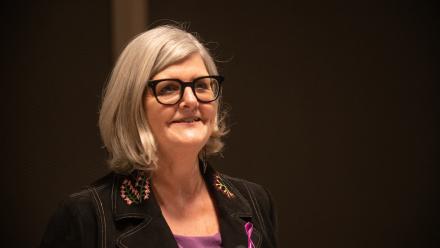Two choices
Dr Ahmed Kamal (PhD '89)
16 Dec 2022
My journey to The Australian National University (ANU) was not a straightforward one. I was in my home country of Bangladesh pursuing politics when an acquaintance of mine contacted me about a scholarship opportunity at the University.
Ranajit Guha was an outstanding historian of South Asian history. He joined the ANU and was interested in having somebody from Bangladesh, with a deep understanding of the work of Maulana Bhashani, join the University's history department. He knew that I was not only a follower of Maulana, but had met him personally a number of times, and so insisted I should apply for a research scholarship at the ANU.
That left me with an important decision to make: should I follow the path of higher-education or follow my political ambitions? I chose the latter.
That did not mean Ranajit gave up on trying to get me to ANU. He continued to find ways, through other academics and our common friends, to try and convince me but my answer remained firm. I wanted to join politics and that was all I had in mind. Even after telling Ranajit this, he sent me the admission forms - just in case.
This continued over the years. But when General Ershad seized power in 1982, I could see that my life was once again at cross-roads. By this stage I was Secretary General of the University Teachers Federation in Bangladesh and, with Ershad enacting marshal law, I knew I had two choices: apply at ANU and continue my work in the education movement, or go to prison.
Finally - and to the relief of my friends, family, and the academics who had long been trying to convince me - I applied to ANU.
I was accepted under a scholarship, which allowed me and my family to move to Canberra so I could pursue research. I have many fond memories of my time at the University, including tea breaks in the Union Court cafeteria where I engaged in illuminating conversations with scholars and historians from all over South Asia. I made many good friends through these conversations; perhaps the most interesting of whom was Dipesh.
We enjoyed each other's company, often speaking in Bengali slang together, and became good family friends. He is now 100 years old and I will always treasure the memories we have together, discussing history, our day-to-day problems, what he was reading - and what I should be reading. We had a great time together.
I thank both Dipesh and Ranajit Guha; one for making my time at ANU the richest of experiences, the other for getting me there in the first place.
Other stories you might like to read
Page Owner:
Alumni


